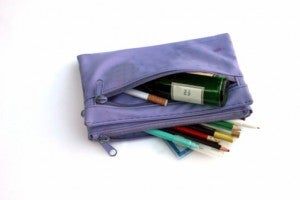Some Warning Notes About Teens, Alcohol, Drugs, and Meds
 A recent tragedy where we live has prompted me to write this post. A 14- year-old “A” student, a model teenager, had a sleepover at her house with friends just like her. It seems she brought out some alcohol and they all drank. All got sick. She died. You must talk with your teens, especially a young teen, about this.
A recent tragedy where we live has prompted me to write this post. A 14- year-old “A” student, a model teenager, had a sleepover at her house with friends just like her. It seems she brought out some alcohol and they all drank. All got sick. She died. You must talk with your teens, especially a young teen, about this.
The first thing you need to do — without even discussing this with your child(ren) — is to make sure all liquor is locked up and all meds are in a protected, locked, place. Make sure that you dispose of all old medications. Moreover, this girl’s death shows that serious well-behaved students can make terrible mistakes.
Then you need to talk with your teen(s) — or even pre-teen(s). I wrote in a previous post that research showed that teenage girls are likely to resist whatever you’re saying. I would say the same is true for boys as well. Nevertheless, you have to go through the rolling of the eyes and the moans and the kid(s) saying, “I know all this. Don’t lecture me!”
The letters to our local editor spoke of all the ways in which parents tried to educate or scare their children. They ranged from the usual warnings about illegality to pictures of car crashes and premature deaths. You should try all or any of these. There’s no sure-fire approach that works.
The most important tack, I would suggest, is to have a heart-to-heart talk with your child(ren). You need to tell her, him, or them, that you are concerned about their safety and health and future. You should tell them that you know that they might experiment with alcohol or drugs and that you’re against it. You should tell them that if they do try substances elsewhere, you’ll pick them up at whatever time they call. You need to tell them that you trust them to make the right decisions about protecting themselves.
If this doesn’t work, something else may be going on. Have them see a counselor and participate in that therapy with your partner and the child(ren).



I thought this was a good article. I also think it would be good for counselors and school administrates to use Motivational Interviewing when talking with their students. This can help the students be empowered to not drink without parents telling them “it’s bad”.
Great article! It’s so important for parents to provide high levels of strategic supervision with the high risk situations that exist today for kids.
The best time to have the recommended heart to heart talks about drugs and alcohol is when things are emotionally positive, not in the heat of the moment. Effective discipline is all about increased parental involvement and positive relationship building.
I also agree with the previous comment that motivational interviewing can be a powerful clinical tool for parents to learn and apply around drug/drink prevention.